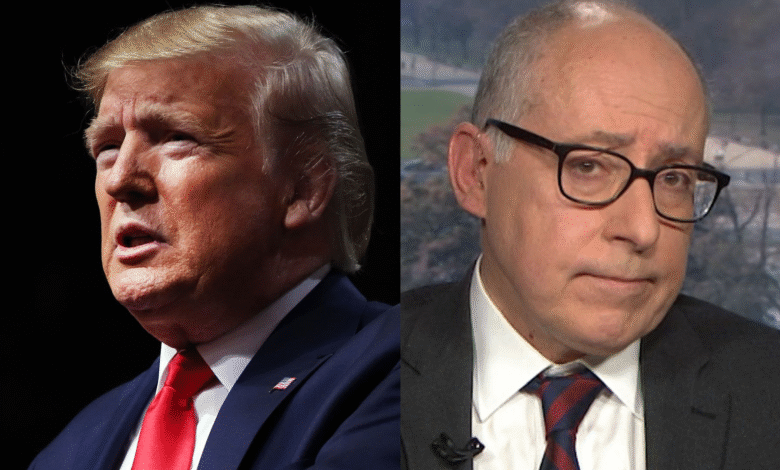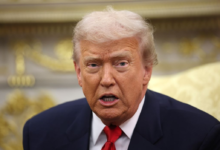Doctor Identifies Possible Reasons for Trump’s Secret MRI
A neurological issue was the first possibility the doctor mentioned.

A leading cardiologist believes President Donald Trump secretly underwent an MRI because he was experiencing symptoms associated with a neurological condition.
Dr. Jonathan Reiner told CNN that Trump’s doctors could have ordered an MRI for many reasons, and he believes the White House has a responsibility to explain those reasons to the public.
Regarding the MRI, Dr. Reiner said, “Typically, symptoms trigger the consultation. These could be neurological symptoms, back pain, or heart problems. That’s why it’s critical that the public be informed about why the president had an MRI, who he consulted, and what the results were.”

Dr. Reiner was the cardiologist for former Vice President Dick Cheney, who suffered from serious heart problems, and is currently a professor at George Washington University in Washington, D.C.
Trump, 79, revealed he had an MRI during a press conference aboard Air Force One on Monday.

“I had an MRI. It was excellent,” Trump said.
Asked why he had the scan, he referred the question to his doctors.*
He added, “I gave you the full results. We had an MRI… you know everything. It was excellent.”
Trump insisted he would inform the press of any negative news regarding his mental or physical health.
The last official report on Trump’s health was a one-page memo released after his October 10 visit to Walter Reed Medical Center. The memo stated that Trump was in “excellent overall health” and had undergone “advanced imaging, laboratory tests, and preventive health checkups.”

Asked about the “advanced imaging tests” Trump underwent this month, 28-year-old White House press secretary Carolyn Leavitt dismissed the question, saying it was a routine medical exam.
Reiner told CNN that an MRI was not part of a routine exam.
“An MRI is not part of a routine exam, whether you’re the president of the United States or a private citizen,” he said.

Dr. Vin Gupta, a public health physician and MSNBC contributor, agreed with Reiner. He wrote on X’s website: “Even if you’re a leader of the free world, you shouldn’t have an MRI without a valid reason. There is no such thing as a screening MRI.” »
Reiner said the big question was why Trump was asked to have an MRI, as one or more symptoms must have raised concerns.
Trump has suffered ankle sprains, hand bruises, and a droopy face several times this year, raising questions about his physical health. Added to this are worsening memory loss, difficulty climbing stairs, and an inability to walk straight at times.
The White House often avoids discussing Trump’s health issues. However, in July, the government announced that the president suffers from chronic venous insufficiency, a common circulatory condition characterized by difficulty returning blood to the heart through the veins in the legs.
Reiner believes there may be a link between Trump’s conditions, such as his hand sprains, and what led to the president’s MRI.
He said: “When it comes to sprains, there are many causes. As you know, the most common cause of bruising on the back of the hand in a 79-year-old is medication. And the medication involved is usually a blood thinner”.

He added: “I see this every week in my patients. Blood thinners, especially in older people, cause bruising on the back of the hands, but we haven’t been told the president is taking them. People take blood thinners for a variety of reasons. They can be used for a pulmonary embolism, a blood clot in the leg, deep vein thrombosis, or atrial fibrillation.”
Reiner speculated that the symptom that prompted doctors to order Trump an MRI could also be due to his blood thinning medication.

“People who take blood thinners for atrial fibrillation typically take these medications indefinitely, and bruising is a side effect,” he said. “But the decision to have an MRI depends on whether the underlying cause is the medication or other undisclosed medical problems. The reason for the scan is just as important as the results.”







